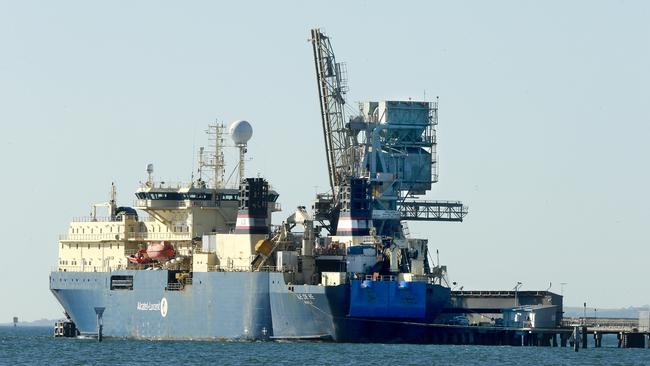
An acquisition of the $877m Basslink interconnector by the APA Group would complement existing assets it owns, say analysts.
APA confirmed on Monday it was in exclusive talks to buy Basslink from the Keppel Infrastructure Trust, which has earlier valued the electricity infrastructure asset at $877m.
It has recently been in negotiations with lenders, with $631m of its debt maturing last month.
Macquarie analysts say its debt last year was $644m.
The 370km sub-sea electricity cable running from Tasmania to Victoria to guard against Tasmanian power shortages in the event of a drought has a contract with Hydro Tasmania to 2031.
APA manages the Murraylink and Directlink regulated electricity interconnectors on behalf of Energy Infrastructure Investments, in which it also holds a 19.9 per cent interest, with other shareholders being Marubeni Corporation with a 49.9 per cent stake and Osaka Gas holding the remainder.
They provide transmission services to the National Electricity Market
Murraylink delivers electricity between the South Australian and Victorian regions of the National Electricity Market and Directlink delivers electricity between the New South Wales and Queensland National Electricity Market regions.
Morgan Stanley analysts say that the value of Basslink provided from Keppel equated to 17.4 times its earnings before interest, tax, depreciation and amortisation, which they said was $50m last year, excluding an $81m arbitration provision for when there was an outage of the cable in 2015 that needed to be repaired.
They say APA is currently trading on 12 times EBITDA.
APA has $1.9bn of debt to fund an acquisition.
Macquarie analysts said that Basslink had a relatively certain future through to 2031 when the primary contract runs to an end.
Hydro Tasmania has the option to extend this for 15 years, although an influencing factor may be another proposed 1500 megawatt capacity undersea and underground electricity connection to further link Tasmania and Victoria, known as Marinus Link.
The analysts say that Basslink’s profitability has been little changed in the past six years, although the 2015 outage caused a $103m loss to Basslink following the settlement of disputes.
The fees grow at slightly below the rate of inflation, but there are incentive payments of less than 2 per cent of base fee revenue and commercial risk sharing agreements equal to between 20 and 25 per cent of base fee revenue.
Keppel has tax losses of about $118m, which APA could use over time, Macquarie says.
The Australian listed APA owns 15,000km of gas pipelines across Australia and delivers half the nation’s gas.
Basslink owner Keppel Infrastructure was required to pay $38.5m to the Tasmanian government for major outages in 2015.
Macquarie analysts say that the interconnector, which incorporates a 12-core fibre-optic telecoms cable, generates about $72m of earnings before interest, tax, depreciation and amortisation in 2020 before one off costs.




To join the conversation, please log in. Don't have an account? Register
Join the conversation, you are commenting as Logout